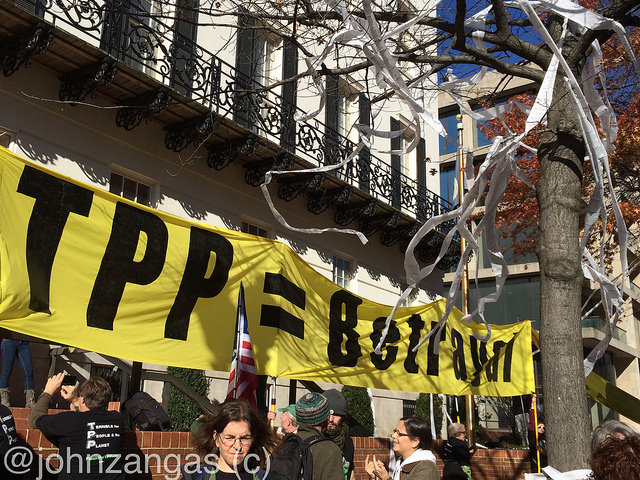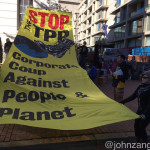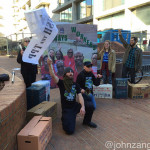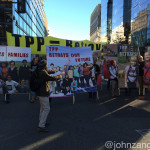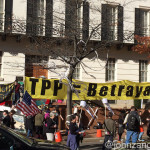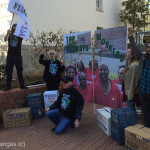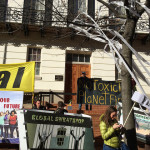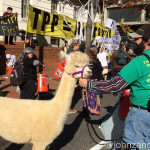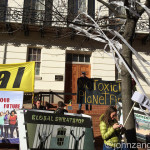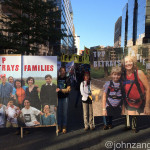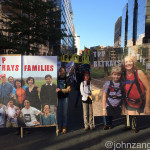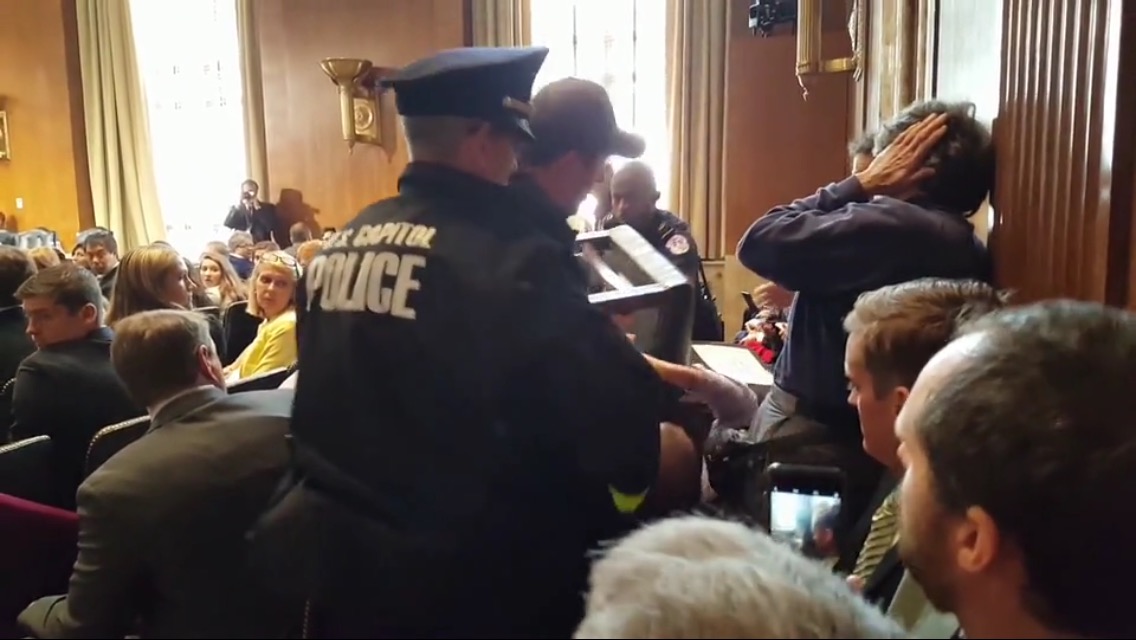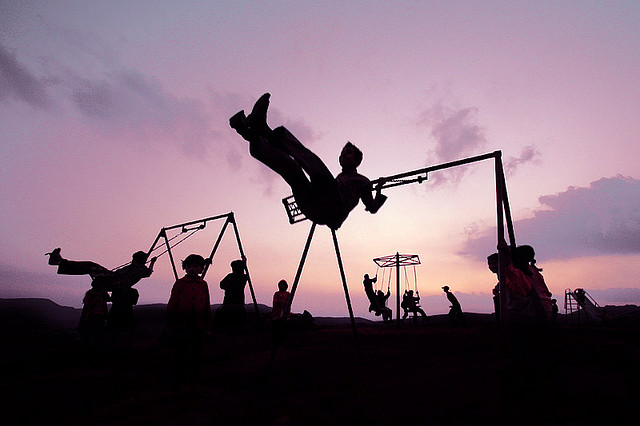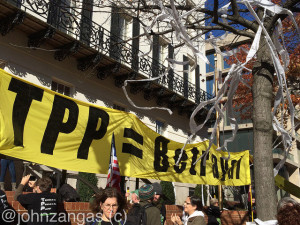
Three days of protests against a trade agreement recently negotiated among twelve Pacific-rim nations kicked off early Monday morning at the Office of the U.S. Trade Representative in Washington, DC. Protesters restricted access to the building as the business day began, using banners as blockades, and obstructed traffic in the area. Department of Homeland Security officers allowed them access and there were no arrests.
Opponents of the Trans Pacific Partnership (TPP) call it a bad trade deal and a sell-out of American workers, consumers, and small businesses. They believe that it is so far-reaching, it will impact every market, every company who creates a product or service, and every person who buys or sells such goods or services in member countries.
The TPP involves everything from Internet access, medical services and Big Pharma, to food production and labeling–as well as environmental protections, workers rights and wages, copyrights and patents, and more. According to many opponents, the agreement will threaten thousands of laws designed to protect consumers and workers and give multinational corporations unprecedented tribunal powers to resolve trade issues.
The 5,700-page text has been negotiated in secret over the last seven years through the office of the U.S. Trade Representative. It was authored by the attorneys of hundreds of large multinational corporations which will benefit from its passage. The text was not released in the U.S. until earlier this month. The public will have only 90 days to read it before it is signed by Obama and forwarded for consideration by Congress.
The details of the trade agreement show much is at stake, and many organizations are mobilizing against it.
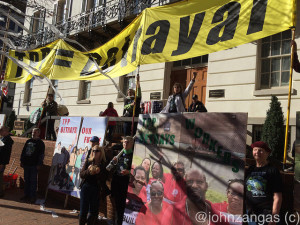 One area affected involves agriculture and the ability for small farmers to maintain access to local markets. Jim Goodman, an organic dairy farmer from Wisconsin and Board Member of Family Farm Defenders, said that the TPP will squeeze him and thousands of small family farms out of business. “This trade agreement takes away the power of small family farmers,” he said. “As food production is globalized, small farmers get pushed out and big farms get bigger, impacting ordinary folks by making less choices in food options.”
One area affected involves agriculture and the ability for small farmers to maintain access to local markets. Jim Goodman, an organic dairy farmer from Wisconsin and Board Member of Family Farm Defenders, said that the TPP will squeeze him and thousands of small family farms out of business. “This trade agreement takes away the power of small family farmers,” he said. “As food production is globalized, small farmers get pushed out and big farms get bigger, impacting ordinary folks by making less choices in food options.”
Goodman also explained how food-labeling restrictions enacted by the TPP will limit food products. “GMOs will not be labeled. Labels identifying cheese as coming from Wisconsin will not be allowed, because a specific label is considered a restriction on someone that wants to import,” he said.
Roni Murray, a senior majoring in chemical engineering at the University of Massachusetts, is concerned the TPP will give corporations the power of tribunals to resolve trade disputes. “There is going to be no real government authority over corporations if this passes,” she said.
More protests are planned at the White House, the U.S. Chamber of Commerce and the Reagan Building and International Trade Center.

